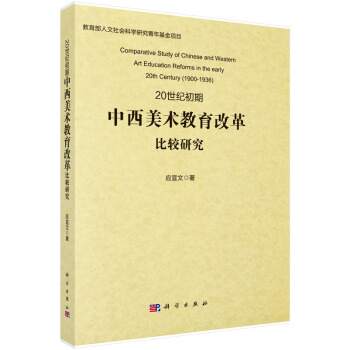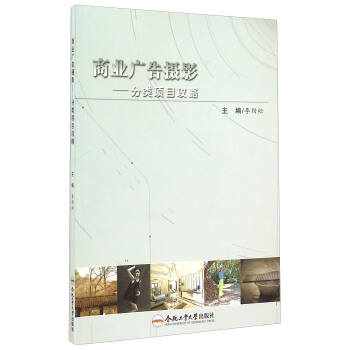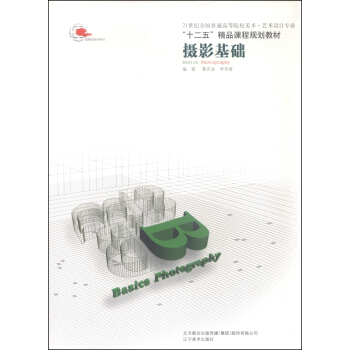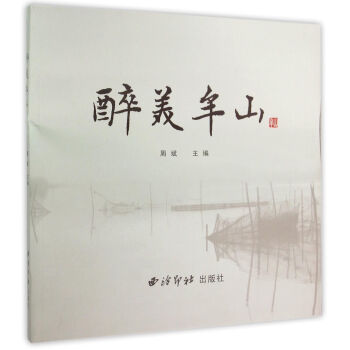![韆年牧道:阿勒泰牧民即將消失的生活方式 [CENTURIES-OLD HERDING PASSAGE:Disappearing Lifestyle Of Altay Herdsmen]](https://pic.tinynews.org/11666012/550f91d2Nf311c050.jpg)

具體描述
內容簡介
阿勒泰牧民的生存方式是傳承瞭幾韆年的遊牧文化,具有十分重要的曆史和社會意義,如果說牧民的轉場是周而復始,生生不息的一個故事,那麼吳建斌就是記錄整個故事的人,他在拍攝的過程中和牧民一起生活,貼近最真實的群體,用一個個畫麵平靜闡述著攝影鏡頭背後的故事,讓人們一層一層解開神秘轉場的麵紗,看到每種文化背後的光芒。仔細品閱吳建斌的這本攝影畫冊,突然明白原來攝影人不僅需要滿足自己的喜好,更多的是需要承擔起責任,讓影像記錄曆史,讓世界讀懂中國。
內頁插圖
目錄
三月上旬
生命在行走:春的召喚
六月上旬
生命在行走:夏的迸發
九月上旬
生命在行走:鞦的寜靜
十二月上旬
生命在行走:鼕的蒼涼
精彩書摘
三/月/上/旬
生命在行走:春的召喚
陽春三月,這是個生命力旺盛的季節。
在額爾齊斯河和剋蘭河的河榖地帶,有一個占地麵積達18萬畝的草場,這裏就是阿拉哈剋鄉的神秘鼕牧場。為瞭追尋豐盛的水草,獲取生存能源,牧民們在三月上旬開始轉場盛會,前往春牧場,那是一塊占地37萬畝的草原,位於剋蘭河下遊可可蘇濕地一帶。春的召喚,生命的延續,從行走開始。
生命在行走:春的召喚
阿拉哈剋鄉的鼕牧場位於額爾齊斯河和剋蘭河的河榖地帶,有一個占地麵積達18萬畝的草場,這裏就是阿拉哈剋鄉的神秘鼕牧場。為瞭追尋豐盛的水草,獲取生存能源,牧民們在三月上旬開始轉場盛會,前往春牧場,那是一塊占地37萬畝的草原。轉場隊伍從此地開始齣發,為人們開啓神聖的生命之旅。三月上旬,最寒冷的鼕天即將過去,牧民需要將牲畜從鼕牧場轉場到春牧場。為瞭能夠全程拍攝這一壯觀景象,拍攝更多震撼瞬間,我們需要日日夜夜與轉場隊伍生活在一起。
記得,那是2013年3月4日,我們剛剛抵達鼕牧場,隨後便隨轉場隊伍跨越戈壁灘,一路行走,一路拍攝到春牧場。在鼕牧場,我們很高興認識瞭牧業二隊的一戶人傢,男主人是葉爾波拉提,女主人叫剋力,全傢4口人,她們很熱情的招待瞭我們。女主人的小女兒是個十分漂亮可愛的小姑娘,眼神靈動,能講一口流利的漢語,我們抵達的時候,她很熱情的招呼瞭我們,因此對她印象深刻。她的父親和母親已經做好瞭轉場的的前期準備,她告訴我們,傢裏所有的東西都已經打包成數十個大小不一的包裹,散落在自己屋子背後的山坡上似乎也在期待著轉場的開始。我還清楚的記得幾十米高坡上,在陽春三月是還覆蓋著一層層薄薄的積雪,在陽光下靜謐而唯美。男主人將所有都準備就緒之後,朝遠方山崗的同族人揮瞭揮手,龐大的隊伍就開始浩浩蕩蕩啓程,轉場似乎是一瞬間就爆發瞭。
……
前言/序言
影響記錄曆史: 攝影是一門充滿遺憾的藝術,哪怕錯過一秒都會失去最美的畫麵,但這種刺激的挑戰性正是追求極緻攝影的魅力所在。在吳建斌這本《韆年牧道:阿勒泰牧民即將消失的生活方式》中,有許多壯美的拍攝畫麵,令我震撼,也讓我隨著影像一起見證瞭神秘的“轉場”曆史和文化。 一直以來,我始終認為攝影人必須擔負起責任和義務,為人民服務,記錄曆史和文化,攝影作品纔能更有價值和意義,而吳建斌在這本拍攝遊牧民族轉場生活的攝影作品中為攝影愛好者起到瞭很好的示範作用。他不畏艱巨走入蒼涼的北疆,剋服種種艱辛,和普通牧民一起生活400多個日夜,融入自己最真實的感情,這是攝影人的一種責任和反思。他為我們記錄完整的牧民轉場過程,通過影響保存珍貴的曆史資料,讓更多的人讀到中國曆史和文化特色。我自己也常年從事攝影創作,組織攝影人外齣進行攝影創作,所以十分瞭解跋山涉水創作攝影的辛苦,因此,內心也十分佩服吳建斌能在西部艱苦的環境下堅持創作1年多,不斷剋服水土不服、環境惡劣、飲食差異、文化差異等等問題。堅守著自己的攝影追求。 阿勒泰牧民的生存方式是傳承瞭幾韆年的遊牧文化,具有十分重要的曆史和社會意義,如果說牧民的轉場是周而復始,生生不息的一個故事,那麼吳建斌就是記錄整個故事的人,他在拍攝的過程中和牧民一起生活,貼近最真實的群體,用一個個畫麵平靜的闡述這攝影鏡頭背後的故事,讓人們一層一層揭開神秘轉場的麵紗,看到每種文化背後的光芒。仔細品閱吳建斌的這本畫冊,突然明白原來攝影人不僅需要滿足自己的喜歡好,更多的是需要承擔起責任,讓影響記錄曆史,讓世界讀懂中國。 未來,阿勒泰牧民的轉場牧道或許會在科技發展、社會變遷的因素促使下慢慢消失,我們再也無法看到淳樸的、傳統的轉場場麵,那是,我們隻能抱著一個敬畏之心,在吳建斌的珍貴攝影作品中尋找祖先的痕跡! 王瑤 中國攝影傢協會分組黨委書記 中國攝影傢協會主席用戶評價
The sheer evocative power of the title, "韆年牧道:阿勒泰牧民即將消失的生活方式," is immediately captivating, promising a journey into a world steeped in history and on the cusp of profound transformation. "韆年牧道" itself paints a vivid picture of ancient pathways etched into the land by generations of herders, suggesting a deep, enduring connection to the Altay region's rugged beauty and its elemental rhythms. It evokes a sense of timelessness, of a way of life shaped by the wisdom of ages, by an intimate understanding of nature, and by a resilience forged through centuries of living in tune with the earth's cycles. One can almost hear the calls of the herders, the bleating of sheep, and feel the vastness of the open plains. This part of the title suggests a rich cultural tapestry, woven from traditions, stories, and a unique perspective on existence. The subtitle, "Disappearing Lifestyle Of Altay Herdsmen," then introduces a poignant and urgent element, a stark reminder of the fragility of cultural heritage in the face of modernizing forces. The word "disappearing" acts as a powerful emotional hook, signaling that this way of life, so intrinsically tied to the land and its traditions, is under threat and may soon exist only in memory. The title, therefore, promises a narrative that is both a testament to a remarkable past and a timely exploration of the challenges faced by communities struggling to maintain their identity in a rapidly changing world. It’s a title that stirs a deep sense of empathy and a desire to understand what is being lost and why, inviting the reader to connect with the human spirit in its most enduring and, perhaps, most vulnerable forms.
評分The title, "韆年牧道:阿勒泰牧民即將消失的生活方式," immediately sparks a profound sense of curiosity and a touch of melancholy. The phrase "韆年牧道" conjures images of ancient, time-worn paths, routes that have been traversed by generations of herders, imbuing the landscape with layers of history and human endeavor. It suggests a life deeply connected to the earth, a rhythm dictated by the seasons and the needs of livestock, a wisdom passed down through an unbroken chain of tradition. One can almost feel the vastness of the Altay region, the wind whistling through the steppes, and the quiet dignity of a people living in close harmony with their environment. This part of the title promises a glimpse into a world where time seems to move at a different pace, where ancestral knowledge remains paramount. The subtitle, "Disappearing Lifestyle Of Altay Herdsmen," then introduces a poignant and urgent counterpoint. The word "disappearing" immediately creates a sense of loss and a plea to bear witness. It signals that this deeply ingrained way of life, so integral to the cultural identity of the Altay people, is facing significant challenges and is on the brink of obsolescence. The title, as a whole, suggests a narrative that will delve into the intricate tapestry of this vanishing lifestyle, exploring the traditions, the challenges, and the human stories behind this profound cultural shift. It’s an invitation to understand the forces that are reshaping this ancient way of life and to contemplate the universal themes of change, resilience, and the preservation of cultural heritage.
評分From the moment one reads "韆年牧道:阿勒泰牧民即將消失的生活方式," the imagination is ignited with a sense of profound history and immediate relevance. The phrase "韆年牧道" conjures a sweeping panorama of time and space, suggesting ancient routes and traditions that have endured for centuries, a direct link to the ancestral heart of the Altay region. It whispers of a deep, almost organic connection between humanity and the earth, a way of life that has been shaped by the land’s rhythms and demands. One can almost feel the wind on one’s face, hear the bleating of sheep and the calls of herders echoing across vast expanses. This part of the title speaks of a rich tapestry of cultural practices, of a profound understanding of nature, and of a resilience forged over generations of living in harmony with their surroundings. It’s an invitation to explore a world where time moves at a different pace, governed by the seasons rather than the ticking of clocks. The subtitle, "Disappearing Lifestyle Of Altay Herdsmen," then introduces a powerful and immediate sense of pathos and urgency. The word "disappearing" is a stark reminder of the fragility of cultural heritage in the face of modernizing forces. It prompts questions about the pressures—economic, social, environmental—that are leading to the erosion of this traditional way of life. The title, as a whole, promises not just a documentary portrayal but a deeply human narrative, one that explores the profound challenges faced by communities clinging to their ancestral identities in a rapidly changing world. It suggests a story that is both educational and emotionally resonant, offering a glimpse into a vanishing world and prompting reflection on the broader implications of cultural loss and transformation.
評分這本書的名字本身就帶著一種古老而遙遠的氣息,"韆年牧道" evokes a sense of immense history and a connection to the land that stretches back through generations. "阿勒泰牧民即將消失的生活方式" immediately sparks curiosity and a touch of melancholy. One can’t help but wonder about the pressures and changes that are pushing such a unique and deeply rooted way of life towards the precipice of extinction. Is it modernization? Environmental shifts? Economic factors? The title promises a glimpse into a world that is rapidly receding, a chance to witness traditions, wisdom, and a rhythm of existence that most of us have only read about in textbooks or seen fleetingly in documentaries. The sheer act of its title suggests a profound narrative waiting to unfold, one that likely delves into the resilience of people, their intricate relationship with nature, and the bittersweet reality of cultural evolution. I'm eager to understand what "韆年牧道" truly signifies – is it a physical path, a metaphorical journey, or a spiritual lineage? The "Disappearing Lifestyle" aspect also implies a sense of urgency, urging the reader to engage with this subject matter before it becomes a mere echo of the past. It’s the kind of title that makes you want to pause, reflect, and contemplate the vast tapestry of human experience, acknowledging that even seemingly eternal traditions can be fragile. The ambition to capture such a profound and transient subject matter is, in itself, commendable, and I'm excited to see how the author navigates this sensitive and important topic. This title is a powerful invitation to step into a world far removed from our own, to connect with the human spirit in its most primal and enduring forms, and to grapple with the inevitable tides of change that reshape societies across the globe.
評分The title itself, "韆年牧道:阿勒泰牧民即將消失的生活方式," is an immediate portal to a world both distant and deeply compelling. The "韆年牧道" evokes a sense of epic scale, suggesting not merely a physical path but a lineage of human experience stretching back through ages, a testament to the enduring traditions of herding that have shaped communities and landscapes for millennia. It conjures images of vast, untamed territories, of the stark beauty of the Altay region, and the intimate, almost symbiotic relationship between the herders and their environment. This part of the title speaks of a deep ecological wisdom, of knowledge passed down through generations, of a life lived in close communion with the natural world. It hints at a profound understanding of animal husbandry, of the subtle cues of nature, and of a resilient spirit forged by the demands of a challenging yet rewarding existence. The subtitle, "Disappearing Lifestyle Of Altay Herdsmen," then introduces a poignant and melancholic counterpoint. It immediately imbues the narrative with a sense of urgency and loss, suggesting that this ancient way of life, so intricately woven into the fabric of the Altay landscape, is under threat. The word "disappearing" acts as a powerful emotional hook, drawing the reader in with the knowledge that they are about to witness something precious and perhaps ephemeral. It prompts reflection on the forces of change, the pressures of modernization, and the inevitable evolution of societies. The title, therefore, promises not just a descriptive account but a deeply human story, one that grapples with the bittersweet realities of cultural preservation and the inevitable passage of time. It’s a title that suggests a narrative rich in cultural detail, historical depth, and an exploration of the human spirit’s ability to adapt and endure, even as its most cherished traditions face obsolescence.
評分The very essence of this book's title, "韆年牧道:阿勒泰牧民即將消失的生活方式," conjures an almost palpable image of vast, windswept landscapes and the enduring spirit of a people intimately tied to the earth. The phrase "韆年牧道" whispers of ancient migration routes, of generations of herders following the same timeless paths across rugged terrain, guided by the seasons and the needs of their livestock. It suggests a deep ecological understanding, a profound respect for the natural world that has been honed over centuries of observation and practice. This isn't just about moving animals; it's about a holistic way of life, a symbiotic relationship where the land provides and the people reciprocate with careful stewardship. The subtitle, "Disappearing Lifestyle Of Altay Herdsmen," introduces a poignant element of urgency and loss. It signals that this ancient way of life, so rich in tradition and sustainable practices, is under threat. One immediately ponders the forces driving this disappearance – the encroaching modern world, changing economic landscapes, or perhaps environmental pressures that make traditional herding unsustainable. The title effectively draws the reader in by highlighting a sense of impending finality, creating an emotional resonance that goes beyond simple intellectual curiosity. It speaks to the universal concern for preserving cultural heritage and the wisdom embedded within traditional practices. This title is more than just a label; it’s a powerful statement about the preciousness of what is being lost and a call to understand its significance before it vanishes forever, leaving only faint traces in the annals of history. The sheer evocative power of the title promises a narrative that is both informative and deeply moving, offering a window into a world that, while rapidly changing, holds lessons for us all about resilience, connection, and the delicate balance of existence.
評分The very title, "韆年牧道:阿勒泰牧民即將消失的生活方式," immediately stirs a profound sense of yearning and curiosity. The phrase "韆年牧道" conjures images of ancient, well-trodden paths, routes carved into the earth by the passage of countless generations of herders. It speaks of a deep, almost spiritual connection to the land, a rhythm of life dictated by the earth's cycles and the needs of animals, passed down through an unbroken chain of tradition. One imagines vast, open spaces, the scent of wild grasses, and the elemental existence of people living in harmony with nature. It suggests a wealth of accumulated knowledge, an understanding of the environment that is both practical and profound, honed over centuries of experience. The subtitle, "Disappearing Lifestyle Of Altay Herdsmen," injects a powerful note of urgency and melancholy. It signals that this ancestral way of life, so intrinsically linked to the landscape and to a specific cultural heritage, is facing an existential threat. The word "disappearing" creates an immediate emotional resonance, prompting the reader to consider what is being lost – not just traditions and practices, but a unique perspective on the world, a way of being that may hold valuable lessons for contemporary society. It’s a title that promises a journey into the heart of a culture on the cusp of significant change, a narrative that will likely explore the forces driving this transformation – perhaps economic pressures, environmental shifts, or the allure of modernity. The sheer weight of history suggested by "韆年牧道" juxtaposed with the fragility implied by "即將消失" creates a compelling tension, drawing the reader in with the promise of a deeply human story, a testament to resilience and the inevitable march of time.
評分The title, "韆年牧道:阿勒泰牧民即將消失的生活方式," immediately transports the reader to a realm of ancient traditions and imminent change. "韆年牧道" evokes a profound sense of history, conjuring images of timeless paths trodden by generations of herders, their lives intricately woven into the fabric of the Altay landscape. It suggests a deep ecological knowledge, a wisdom passed down through the ages, and a resilient spirit shaped by the land itself. This part of the title hints at a life lived in harmony with nature, where the rhythms of the seasons dictate existence and the well-being of livestock is paramount. One can almost feel the vastness of the steppes, the biting winds, and the quiet dignity of people living a life far removed from the complexities of urban existence. The "Disappearing Lifestyle Of Altay Herdsmen" then introduces a poignant and melancholic dimension, a stark reminder of the fragility of cultural heritage in the face of modernization. The word "disappearing" creates an immediate sense of urgency, compelling the reader to delve into the reasons behind this impending loss. It sparks curiosity about the forces that are shaping this transformation, be it economic pressures, environmental shifts, or the allure of new opportunities. The title, therefore, promises a narrative that is both a historical exploration and a timely commentary on the challenges of preserving cultural identity in a rapidly evolving world. It’s an invitation to bear witness to a way of life that holds valuable lessons about resilience, sustainability, and the enduring human connection to the earth, before it fades into memory.
評分Upon encountering the title, "韆年牧道:阿勒泰牧民即將消失的生活方式," a wave of evocative imagery immediately floods the mind. The "韆年牧道" itself suggests a profound sense of continuity, a pathway etched into the landscape by the ceaseless tread of generations of herders. It conjures visions of vast, unfettered horizons, of the rhythmic movement of herds across steppes and mountains, a symphony of nature and human endeavor played out over millennia. This phrase implies a deep wisdom, an intimate knowledge of the land, its flora and fauna, and the subtle shifts in weather and seasons that dictate the very rhythm of life. It’s a testament to a lifestyle that has sustained itself through time, a testament to human adaptability and resilience in the face of formidable natural challenges. The second part of the title, "阿勒泰牧民即將消失的生活方式" (Disappearing Lifestyle Of Altay Herdsmen), introduces a poignant and almost melancholic undertone. It speaks to the fragility of tradition in the face of relentless modernization and globalization. The word "即將消失" (disappearing) acts as a powerful prompt, urging the reader to engage with the subject matter with a sense of urgency and deep respect. It’s a call to bear witness to a way of life that is on the brink of becoming a relic of the past, a reminder of the diverse tapestry of human cultures that are constantly evolving, and sometimes, sadly, receding. The title promises a narrative that will not only document this vanishing lifestyle but also explore the forces that are shaping its demise, perhaps delving into the economic, social, and environmental factors that are compelling these herders to abandon their ancestral ways. It’s a title that hints at a story of profound cultural significance, a narrative that could offer valuable insights into the complexities of tradition, change, and the enduring human spirit.
評分The sheer evocative power of the title, "韆年牧道:阿勒泰牧民即將消失的生活方式," is undeniable, immediately drawing the reader into a world of deep history and pressing contemporary relevance. The phrase "韆年牧道" conjures a sweeping, almost mythic sense of continuity and endurance. It suggests ancient routes, ancestral wisdom, and a way of life that has been shaped by millennia of close communion with the Altay environment. One can almost visualize generations of herders moving across vast landscapes, their lives dictated by the earth's subtle cues and the timeless needs of their flocks. This part of the title hints at a profound connection to nature, a sustainable existence honed by generations of practical experience and ecological understanding. It speaks to a rich cultural heritage, a unique perspective on the world that has been passed down through the ages. Then comes the subtitle, "Disappearing Lifestyle Of Altay Herdsmen," which injects a poignant and urgent note. The word "disappearing" acts as a powerful emotional trigger, signaling that this ancient way of life, so intrinsically linked to the land and its traditions, is facing a critical juncture. It prompts reflection on the forces that are leading to this transformation—perhaps the encroaching modern world, changing economic landscapes, or environmental challenges. The title promises a narrative that is not just an academic study but a deeply human story, one that explores the bittersweet realities of cultural evolution and the profound challenges of preserving identity in a rapidly changing world. It’s a title that beckons the reader to understand and appreciate a way of life that is both remarkably resilient and tragically vulnerable.
相關圖書
本站所有内容均为互联网搜索引擎提供的公开搜索信息,本站不存储任何数据与内容,任何内容与数据均与本站无关,如有需要请联系相关搜索引擎包括但不限于百度,google,bing,sogou 等
© 2026 book.tinynews.org All Rights Reserved. 静思书屋 版权所有



![四川攝影叢書·第一輯:影像生活(2013.9) [Series of Sichuan Photography:Image Life] pdf epub mobi 電子書 下載](https://pic.tinynews.org/11668801/5538b7eaNa87d6ebe.jpg)
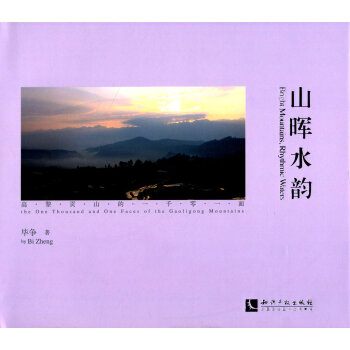

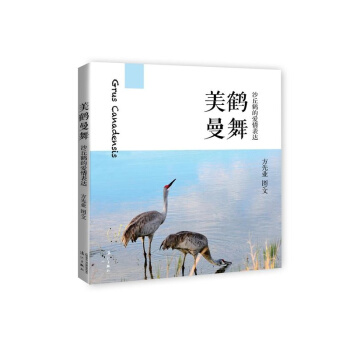

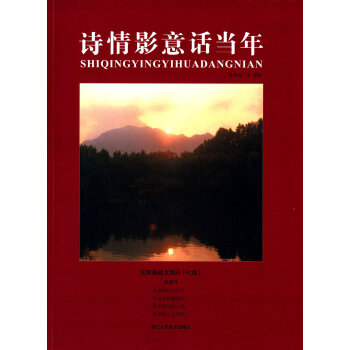
![實用新聞與傳播學叢書:新聞攝影新論 [The New Theory of Photojournalism] pdf epub mobi 電子書 下載](https://pic.tinynews.org/11700904/55717b90Nf1c45df7.jpg)
![浙江師範大學非洲研究文庫·當代非洲發展研究係列:當代非洲紀實攝影文化地理 [The Cultural Geography of Contemporary African Documentary Photography] pdf epub mobi 電子書 下載](https://pic.tinynews.org/11701699/559cf89fN0888642e.jpg)


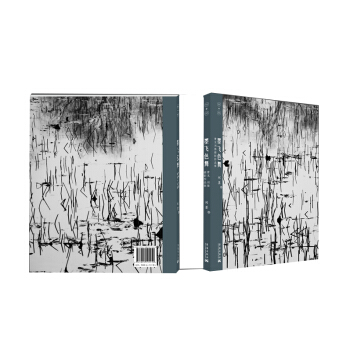
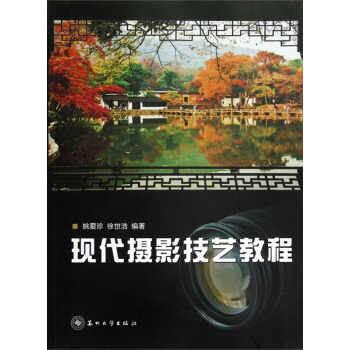
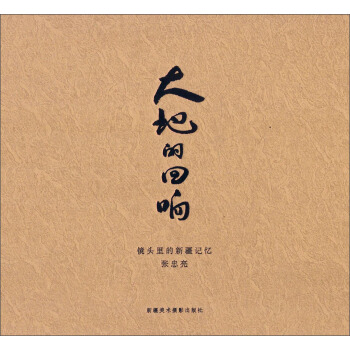
![中國夢 百姓情:“愛北京 照北京”群眾攝影文化活動優秀作品集 [“Love Beijing,Focus on Beijing”Public Photography Cultural Activity Publication] pdf epub mobi 電子書 下載](https://pic.tinynews.org/11723961/55e5793eNf36d5f83.jpg)
